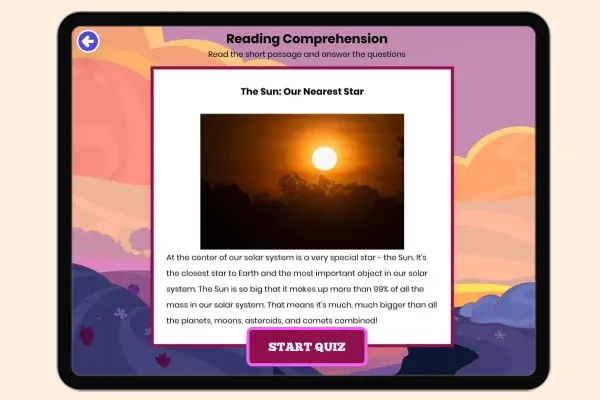Observing the Moon and Stars Game
Premium Resource
Grades
1
2
3
4
5
PRINT+DIGITAL RESOURCE
This learning resource is available in interactive and printable formats. The interactive worksshet can be played online and assigned to students. The Printable PDF version can be downloaded and printed for completion by hand.Sort these words into categories to show whether each describes something visible in the sky during the day or at night.
DaytimeNighttimesuncloudsblue skysunrisesunsetstarsmoonfull moonbright moonconstellationsbright starscrescent moonABOUT THIS GAME
In the 'Observing the Moon and Stars' word sort activity aligned with 1-ESS1-1, students explore the visibility of the moon and stars and how they are mostly seen at night, while the sun is visible during the day. This activity encourages students to sort words such as 'full moon,' 'sunrise,' and 'constellations' into daytime and nighttime categories, allowing them to observe and understand predictable patterns in the sky that help differentiate day from night.
Publisher:
Workybooks
Written by:
Workybooks Team
Illustrated by:
RELATED TAGS
moon and stars
NGSS 1-ESS1-1
sky patterns
daytime nighttime
moon phases
constellations



















